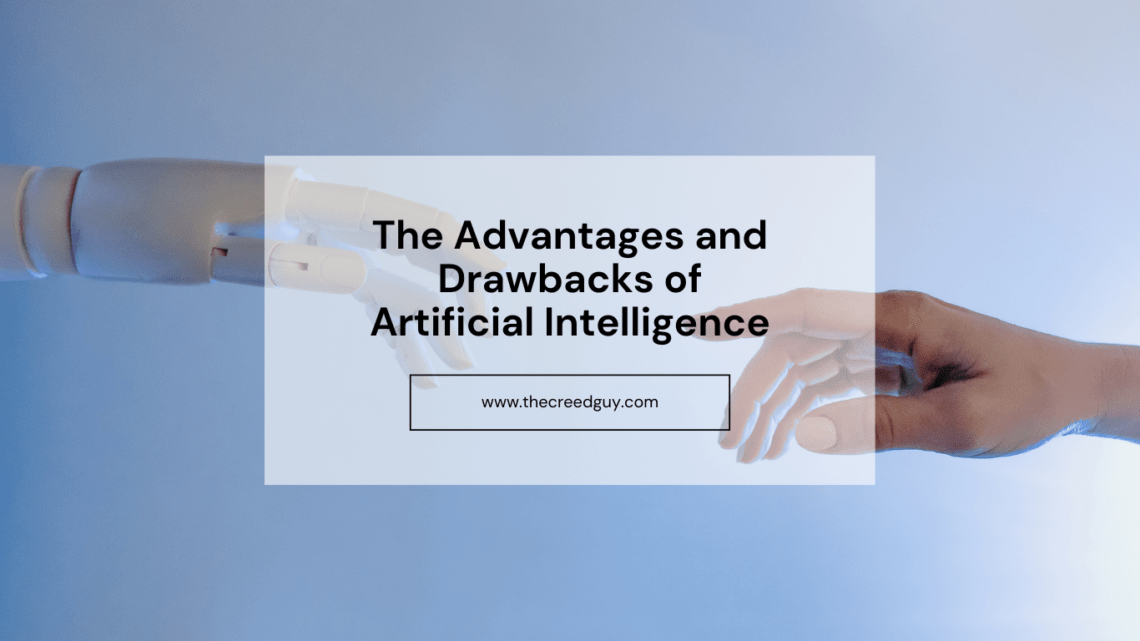
The Advantages and Drawbacks of Artificial Intelligence
Artificial Intelligence (AI) has been a hot topic of discussion for many years, and its impact on our lives and society is only going to increase as technology continues to advance. AI refers to the ability of machines to perform tasks that typically require human intelligence, such as visual perception, speech recognition, decision-making, and language translation.
AI has already revolutionized various industries, from healthcare to finance, and has the potential to transform many more in the future. However, as with any new technology, there are both pros and cons to consider when it comes to AI.
Pros of Artificial Intelligence:
- Increased Efficiency: AI can process vast amounts of data at a much faster rate than humans. This leads to increased efficiency in various industries, as machines can perform tasks that would take a long time for a human to complete. For example, in healthcare, AI algorithms can analyze medical images and make diagnoses much faster than a human doctor.
- Improved Accuracy: AI algorithms can be trained to identify patterns and make predictions with a high degree of accuracy. This leads to more accurate diagnoses and predictions in various industries, such as finance and healthcare. For example, AI algorithms are being used to identify credit card fraud with a high degree of accuracy, reducing the number of false alarms and saving companies time and money.
- Cost-effective: AI can be programmed to perform tasks without the need for breaks, overtime pay, or benefits, making it a cost-effective solution for many industries. For example, customer service representatives can be replaced by AI chatbots, which can handle a large volume of customer inquiries at a lower cost.
- Improved Decision Making: AI algorithms can analyze vast amounts of data to make decisions that are based on data, rather than intuition. This leads to more informed decision-making in various industries, such as finance and healthcare. For example, AI algorithms are being used to make investment decisions in the stock market, leading to more informed and profitable investment decisions.
Cons of Artificial Intelligence:
- Job Losses: One of the biggest concerns about AI is it is potential network error to replace human jobs. As AI becomes more advanced and capable of performing tasks previously done by humans, many jobs may become automated, leading to job losses and unemployment.
- Bias and Discrimination: AI algorithms are only as good as the data they are trained on, and if that data contains biases, the AI system will likely perpetuate those biases. This can lead to discriminatory practices and harm marginalized groups.
- Lack of Human Empathy: AI systems lack the human empathy and emotional intelligence that is often necessary to provide the best outcomes in certain industries, such as healthcare and customer service. This can lead to a lack of personalization and poor customer experiences.
- Potential for Misuse: AI systems can be used for malicious purposes, such as cyberattacks and the spread of fake news. The development of autonomous weapons and the potential for AI to be used in a military capacity is also a concern network error.
In conclusion, AI has the potential to revolutionize various industries and improve our lives in numerous ways. However, it is important to consider the potential consequences and ensure that the development and use of AI are guided by ethical and responsible principles. As AI continues to advance, it will be crucial for society to find a balance between the benefits and risks associated with this technology.
You May Also Like

BanKo wins 2024 Change Maker Award for Most Innovative Bank for MSMEs
May 10, 2024
RP Blu Boys qualifies for the World Cup berth
September 6, 2022

